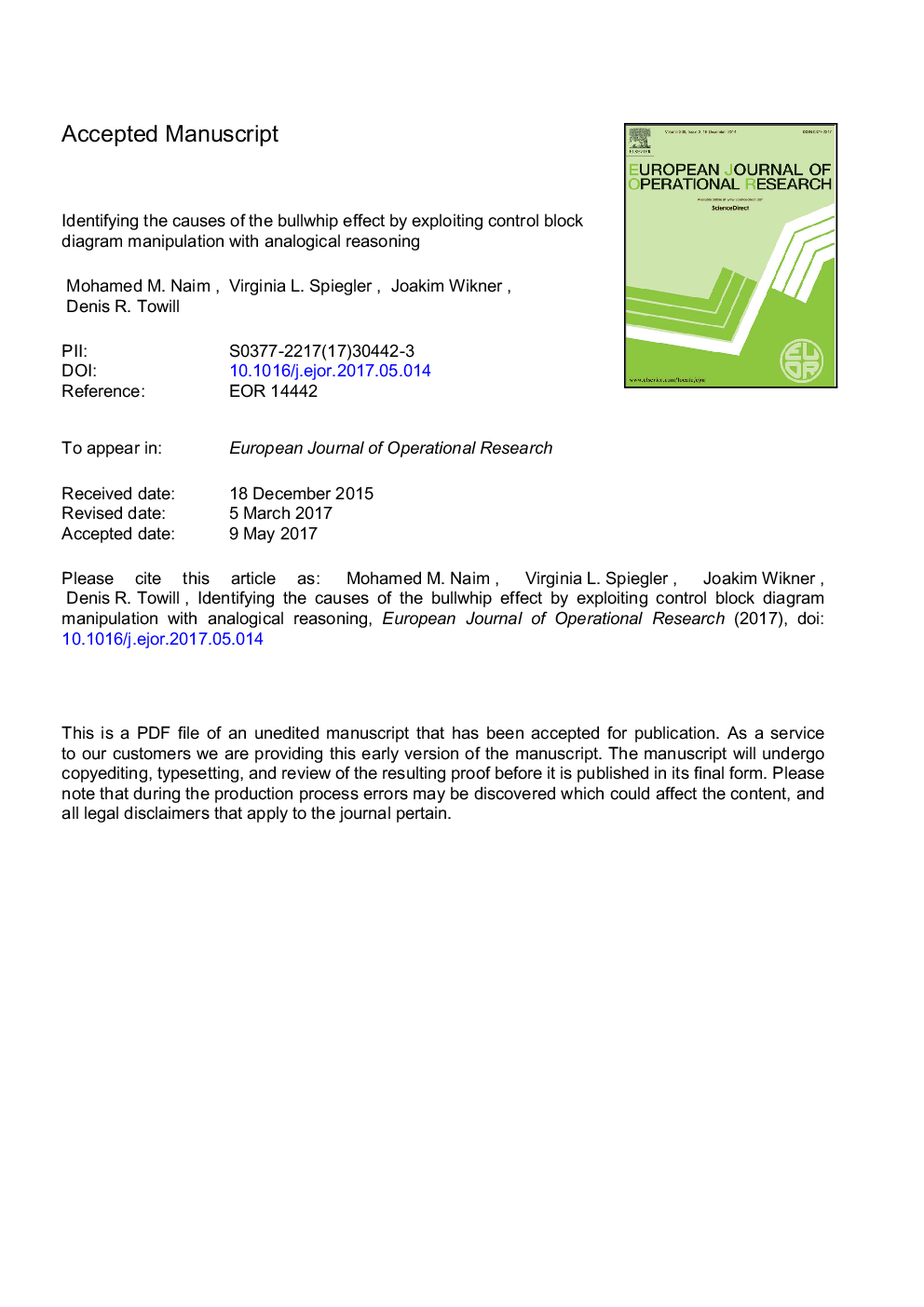ترجمه فارسی عنوان مقاله
شناسایی علل اثر شکارچی با استفاده از کنترل بلوک کنترل با استدلال های مشابه
عنوان انگلیسی
Identifying the causes of the bullwhip effect by exploiting control block diagram manipulation with analogical reasoning
| کد مقاله | سال انتشار | تعداد صفحات مقاله انگلیسی |
|---|---|---|
| 162137 | 2017 | 15 صفحه PDF |
منبع

Publisher : Elsevier - Science Direct (الزویر - ساینس دایرکت)
Journal : European Journal of Operational Research, Volume 263, Issue 1, 16 November 2017, Pages 240-246

